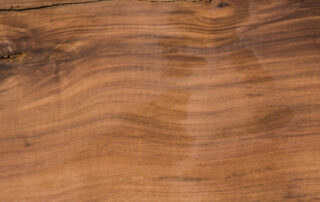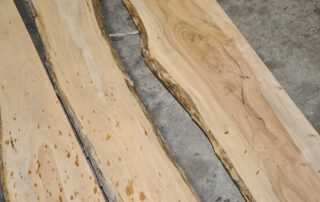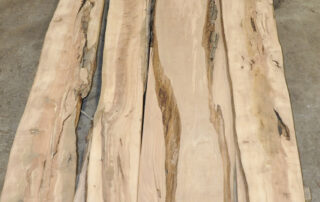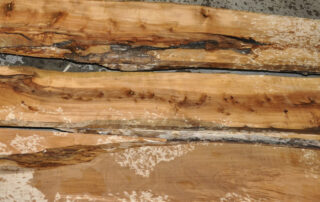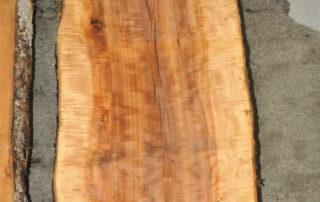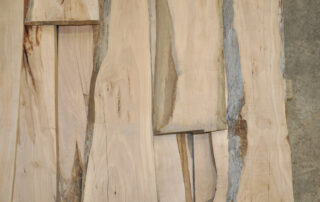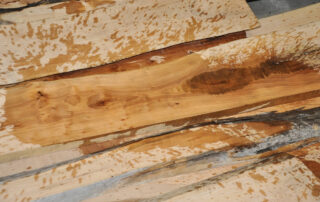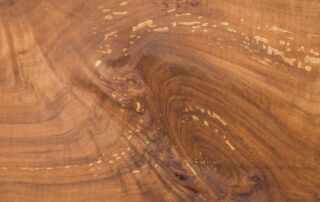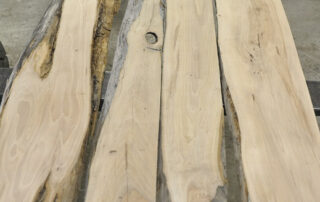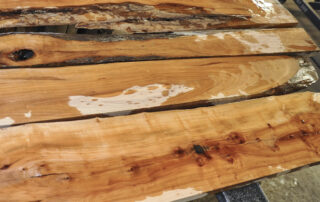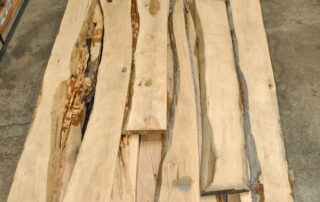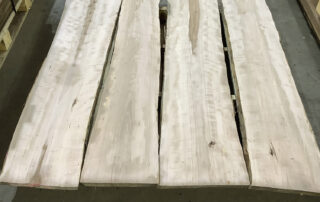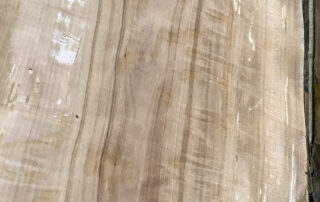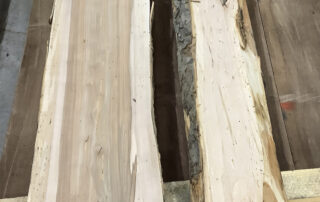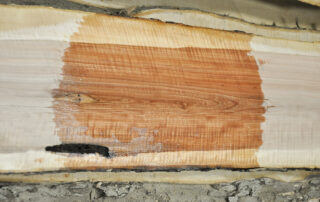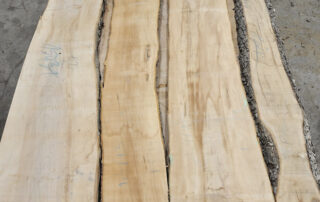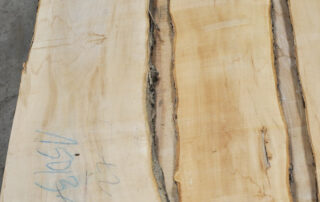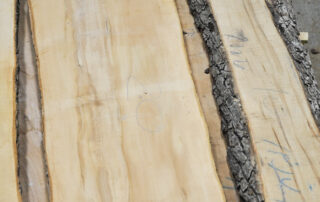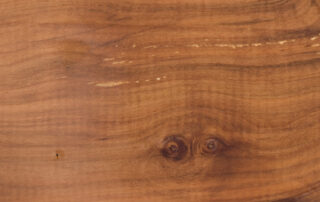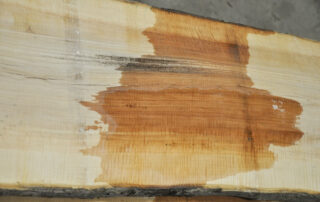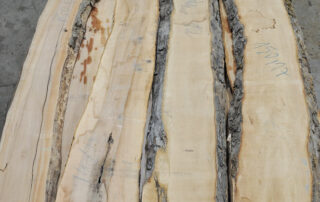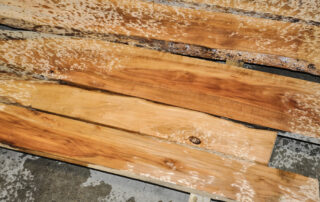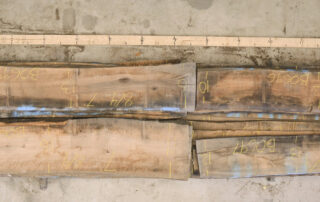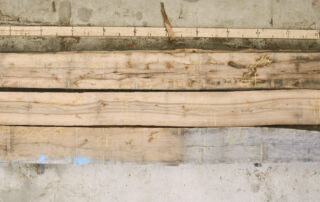
APPLE WOOD
Apple trees are hard to find in a size large enough to produce lumber because the trees are usually pruned to keep the fruit low to the ground. When an American orchard has passed maturity the trees are often bull dozed over and burned. The Europeans hate to waste anything and will take the log harvest to a local sawmill where they will be turned into a lumber that will delight users for generations.
- Fruit tree wood with very fine texture
- Boards normally only available short, narrow
- Best used for smaller projects
- Trees are slow growing and normally only cut when they’re no longer useful as a fruit tree
- Most domestic Apple is of the European variety
- Wood has beautiful creamy sap color with darker light brown heart color
- Prized wood for whirlwind instruments
Characteristics of Apple
| Origin of Wood Type | USA and Europe |
| Botanical Name | Malus sylvestris |
| Specific Gravity | 0.71 |
| Avg. Weight Per BF | 3.58 lb/bf |
| Color Range | Tan- Pink |
| Rarity / Availability | Sometimes available in smaller boards |
| Typical Avg. Width | 2″ to 10″, rarely up to 16″ |
| Typical Avg. Length | 2′ to 6′, rarely up to 8′ |
| Avg. Waste Factor | 50% and up |
| Wood Uses | Wood Turning, Fine Furniture, Whirl Wind Musical Instruments, Carving, Inlay Work, Veneer and more |
| Lumber Grades | Flitch, Veneer, Flitch (Premium) |
| Other Trade Names | German Apple, Apple Wood, European Apple, Domestic Apple, Knotty Apple |
Apple Lumber Detailed Pricing:
| Species | Thickness | Grade | Grain Orientation | Width Range | Length Range | Price Per BF |
|---|---|---|---|---|---|---|
| Apple (European) | 8/4 | Flitch (European) | Flat Sawn | 3.00″ to 11.50″ | 24.00″ to 96.00″ | $22.00 |
| Apple (European) | 12/4 | Flitch (European) | Flat Sawn | 3.00″ to 11.50″ | 24.00″ to 96.00″ | $25.00 |
***Call for availability. 1.610.932.7400***
Sample Pictures of Apple
Please Note: The photos below are examples of the species and may no longer be products available for sale.
All pictures of wood that appear wet, have been sprayed with denatured alcohol to show the natural color. We use denatured alcohol because it evaporates and does not affect the moisture content.


